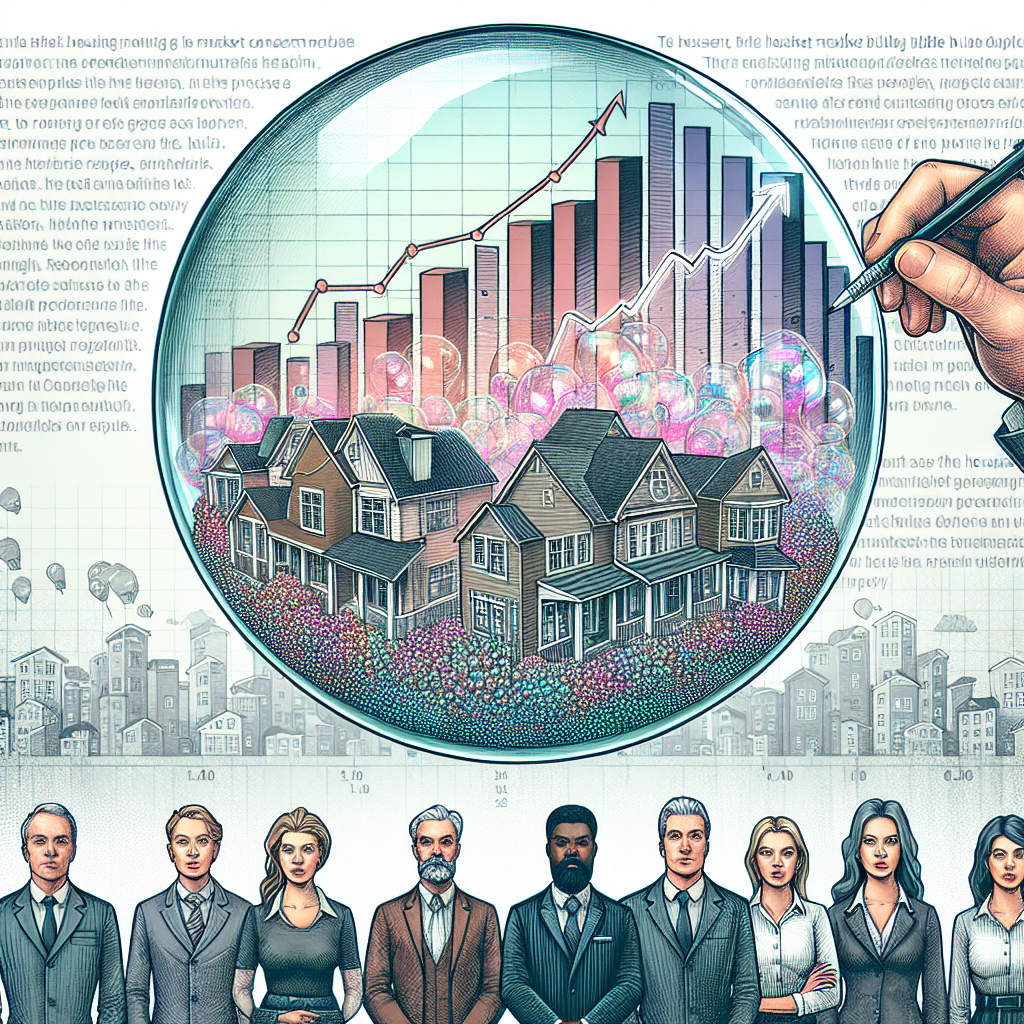When we think about the housing market bubble, most of us tend to imagine mortgage rates, property prices, or investment risks. Rarely do we consider its implications on our health — both physically and mentally — but perhaps it’s time we did.
The ‘Fashion Trend’ in this scenario isn’t a new style making waves on the runway – it’s a seismic shift of fear rippling through society as concerns about a potential housing market crash grow. From sleepless nights spent worrying about mortgages to anxiety-induced unhealthy eating habits stemming from financial insecurity – these are real symptoms of a trend that can’t be ignored.

The ‘Designer Vision’ is metaphorical here: authorities who shape global economies have designed an unstable world where skyrocketing home prices aren’t beneficial for everyone. The impact? It’s stress-inducing for many people affecting their general wellness.


Next comes ‘Manufacturing Process’. Here’s where things get more tangible when connecting economic environments with health consequences. Financial instability brought by fluctuating markets has been known to trigger various ailments including depression or cardiovascular diseases – producing negative impacts straight off the production line of life
.
‘Market Response’ talks about our individual reactions to this uncertain environment. Some resort to harmful coping mechanisms like substance abuse or overeating while others may experience chronic stress disorders which further compromise overall wellbeing.

Cultural Influence
Our societal norms do not encourage open conversations about financial worries, thus making them a hidden trigger for adverse health outcomes. As ‘Cultural Influence’ we must bring these discussions to the fore and proactively address the intertwined relationship between economic stability and public health.


Sustainability Focus
Lets face it, living in constant fear of an impending housing market bubble is simply unsustainable. This fear takes a toll on our mental health: keeping us anxious, worried and even leading to depression.
Consumer Behavior
The patterns of consumers are clear: they seek security, comfort — peace of mind — which becomes increasingly elusive as concerns grow over unstable housing markets. The stress experienced trickles down into their daily lives affecting their overall wellbeing
.
We also need to acknowledge the upstream factors that contribute towards these challenges – limited affordable housing availability, stagnating wages and rising costs among others.
Future DirectionsFear not! Just because the trend is perilous doesn’t mean it’s permanent. By pushing for regulatory changes or supporting financial literacy initiatives, we can help mitigate some of these risks associated with fluctuating economies.Cultural Impact:In conclusion, being transparent about financial insecurities caused by real estate bubbles won’t just promote healthier individuals — it will ultimately pave the way towards healthier societies at large.
